In a tribute to the momentous occasion of Xacobeo 2021, Correos proudly joins the festivities by unveiling a special commemorative stamp, a homage to the reveredCamino de Santiago. This year marks the 120th instance in the storied history of the Compostela Holy Year, To honor this significant event, Correos has introduced a unique stamp adorned with the image of Floreano, the legendary character from the creative world of renowned cartoonist Gogue. This stamp not only symbolizes the cultural heritage of the Camino but also celebrates the enduring spirit of pilgrimage that has captivated millions over centuries.
The Significance of Xacobeo 2021 in Philately
For Xacobeo 2021, Floreano dresses as a pilgrim, with the traditional cape, staff and pumpkin. Floreano emerged from Gogue’s imagination more than 30 years ago, and since then, he has become one of the most popular characters in the Galician press, appearing every day in the newspaper Faro de Vigo.
This stamp can during Xacobeo 2021 be purchased at the post Offices, in the online store in a pack of 5 or by contacting the Philatelic Service at the e-mail [email protected] and by calling 91 519 71 97. In addition, at the Office from Santiago de Compostela (Rúa do Franco, 4) the special postmark that accompanies this stamp dedicated to the Xacobeo 2021 is available until July 27.
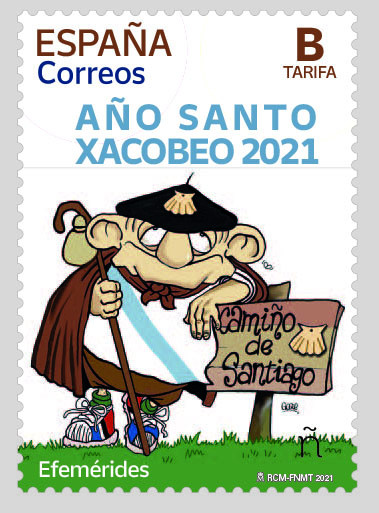
Xacobeo 2021 is not Floreano’s first time on the Camino de Santiago. Gogue’s character was already the protagonist of the animated short The Origin of All Roads. A trip down the river Ulla, in which he relived the arrival of the Apostle in Galicia.
Taking advantage of this issue, Correos want to invite you to have a very special Camino de Santiago through the Jacobean stamps. An itinerary that begins in 1937, the year in which the Post Office issued the first stamp dedicated to the Holy Year, and ends with this new addition to the great Jacobean philatelic family in Xacobeo 2021.
A Storied Philatelic Journey: From 1937 to Xacobeo 2021
The Camino de Santiago and philately have a close and fruitful relationship, whose beginning dates back to July 15, 1937. On this date the first three stamps dedicated to the Jacobean Route were issued. Specifically to the Compostela Holy Year, like Xacobeo 2021. The Apostle Santiago, the Cathedral and the Pórtico de la Gloria were the protagonists of these prints, which were printed in lithography at the ‘Hijos de Fournier’ printing press in Vitoria with the title of Compostela Jubilee Year.
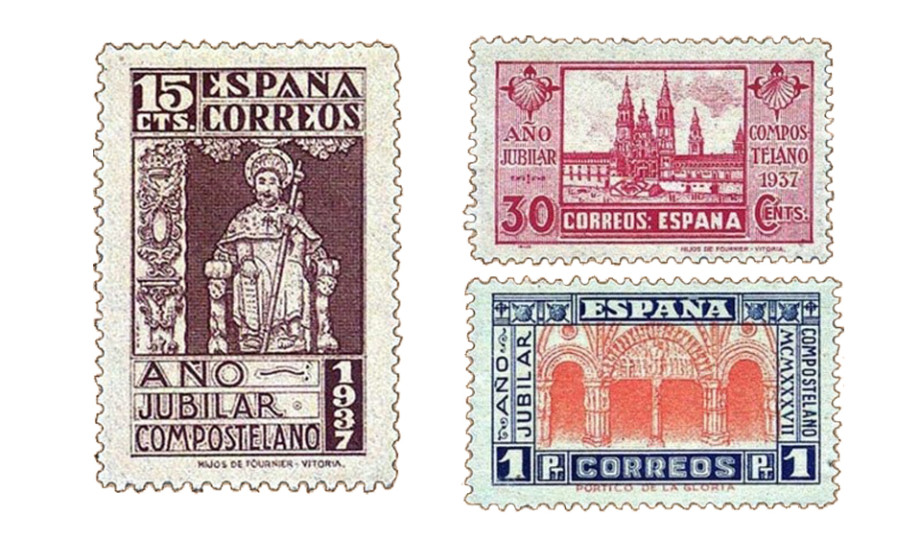
Since then there has not been a Holy Year without its corresponding stamp, sometimes accompanied by other types of materials such as postcards or coins. The more popular the Camino de Santiago became, the more the number of pilgrims who used these stamps grew to send letters full of experiences, memories and experiences of their trip. So also at Xacobeo 2021.
As you can see, some years are especially profuse in the issuance of stamps, as is the case of the Compostela Holy Year of 1971, highlighting a whole series dedicated to international Jacobean icons.

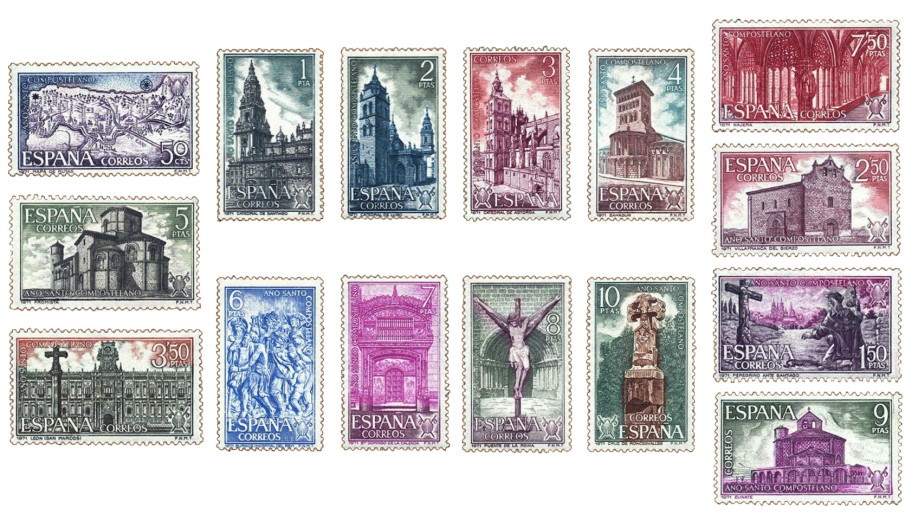
Others focus on special moments in Jacobean history. As an example the stamps of the 1993 Holy Year that represent the ‘traslatio’ of the Apostle’s body in the mythical stone boat and the ‘inventio’, the moment in which Teodomiro discovers his tomb.
The last of the stamps dedicated to the Compostela Jubilee Year is found in 2010, when they celebrated the last Xacobeo. The Cathedral of Santiago and the figure of the pilgrim were on this occasion the classic protagonists of the commemorative stamp.

Stamps with Jacobean stories and places
In addition to commemorating the Holy Years, like in Xacobeo 2021, the postage stamps have been used to graphically tell small stories about the Camino de Santiago, the life of the Apostle and other important moments of this route that thousands of pilgrims travel every year.
On these stamps, for example, Santo Domingo de la Calzada and King Alfonso VI were represented. They were issued in 2009 on the occasion of the IX centenary of his death in 1109. Curiously, it is not the only thing they have in common and that is why we put them together: it was this king who appointed Domingo García responsible for the works to improve the Camino de Santiago .
Other leaders who played a certain role on the Camino de Santiago have also ended up represented on stamps: from King Alfonso II to Sancho Ramírez de Navarra or Pope John Paul II.
In addition to characters, the Jacobean stamps pay tribute to the Camino de Santiago itself and its Routes. The last one was issued in 2016 and in it you can see the main facade of the Cathedral of Santiago welcoming the pilgrims and the traditional scallop.
Among the most recent philatelic tributes to the Jacobean Routes are the cards dedicated to The Ways of Santiago del Norte Peninsular: Camino Costero, Camino Primitivo, Camino Lebaniego (which can be purchased online at the Pilgrim Post Office Store) and Camino interior del País Vasco and La Rioja, declared a UNESCO World Heritage Site in 2015.
Xacobeo 2021: Heritage and monuments
Since the stamps exist, the monumental and artistic heritage is one of the most reproduced motifs. And the Camino de Santiago is full of authentic jewels that have ended up represented in different series (Cathedrals 2012, World Heritage Cities …).
We cannot list them all because there are dozens of them. Some of the most famous are those dedicated to the cathedrals present on the Camino de Santiago such as those of León, Oviedo, Jaca, Burgos, Logroño or Lugo.
Among all of them, the one that received the greatest prominence was evidently that of Santiago de Compostela. Of all the stamps that were dedicated to the Compostela temple, we would like to highlight a very special one from 2018. It is a round stamp that represents the obverse of the 2-euro coin that was launched that year and in which the Apostle Santiago appears. dressed as a pilgrim in front of the main facade of the temple, in the Plaza del Obradoiro.
In Jacobean history there are emissions of other monuments such as monasteries (such as San Juan de la Peña or Samos), churches and other places of worship: from the Collegiate Church of Santillana del Mar to the church of Santiago de Jaca, San Juan de Ruesta, Santa María de Sangüesa or San Bartolomé de Logroño.
But the religious are not the only ones who star in stamps. Over the years, other symbols of the Camino have appeared on stamps such as the Templar castle of Ponferrada, the Casa del Cordón de Burgos, the Arco de Revellín de Logroño, the Hostal de San Marcos de León and a very long etcetera.
Tracing the Camino’s Footsteps in Philately
The relationship between the stamps and the Camino de Santiago has grown so much over the years that in April 2017 Correos launched a specific product for pilgrims: the Philatelic Credential.
Of course, this document does not replace the Credential issued by the Cathedral of Santiago and that accredits the pilgrim as such. But it does allow the lover of the Camino and stamps to have a different and special memory of their Route.
The protagonist of the Philatelic Credential is the French Way. In it, Correos proposes a pilgrimage through 14 stages with a stop in Roncesvalles, Puente la Reina, Nájera, Santo Domingo de la Calzada, San Juan de Ortega, Burgos, Frómista, Carrión de los Condes, Astorga, Ponferrada, O Cebreiro, Sarria and Santiago.
All these places, their architectural landmarks and monuments are the protagonists of the stamps that the pilgrim will take with him in his philatelic Credential, which can also be stamped with very special postmarks available at the Post offices of each town.
Surely, along your route, you have sent endless postcards and letters with a stamp or postmark of the Camino de Santiago. If you want to share it with us, remember that you can do it through any of our social networks: Facebook, Twitter or Instagram or through the comments on this post. Good way! Whether philatelic or not.
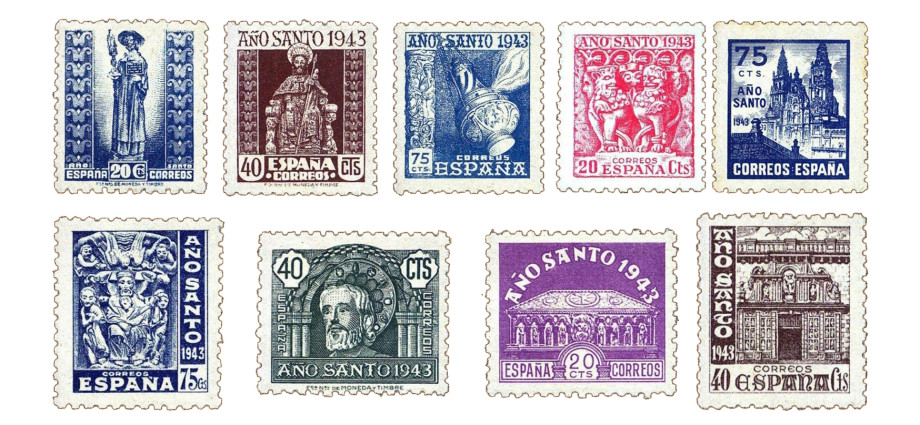
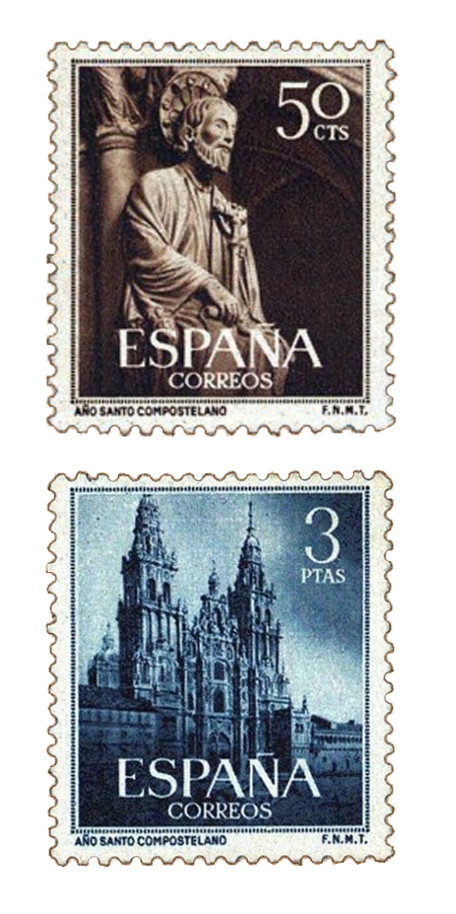
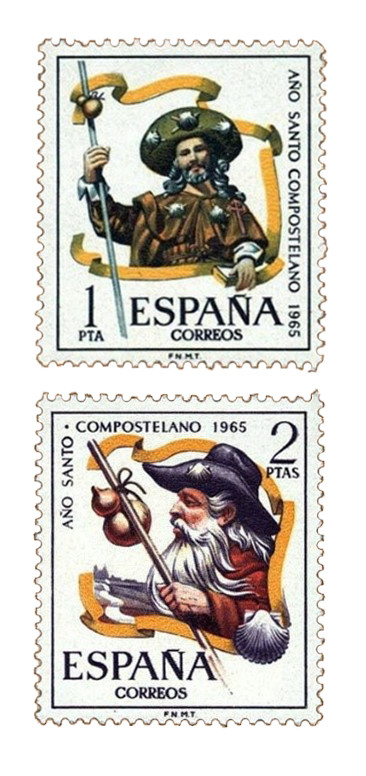
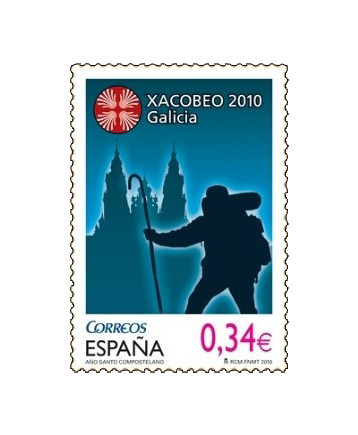
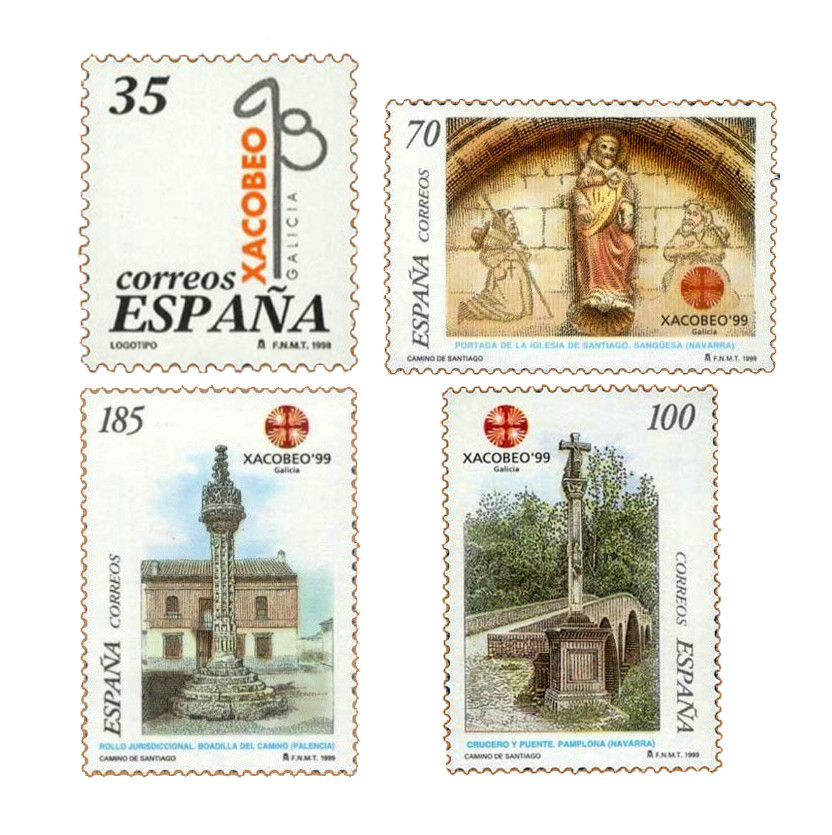
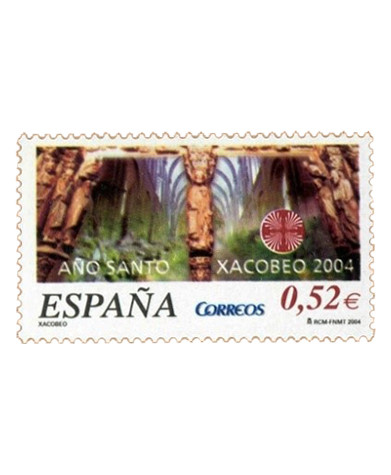
Read more in our blog about how to prepare for your Camino in Xacobeo 2021
Source: Correos


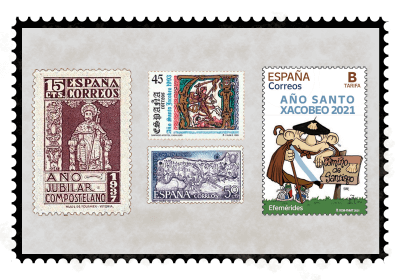
Comment (0)